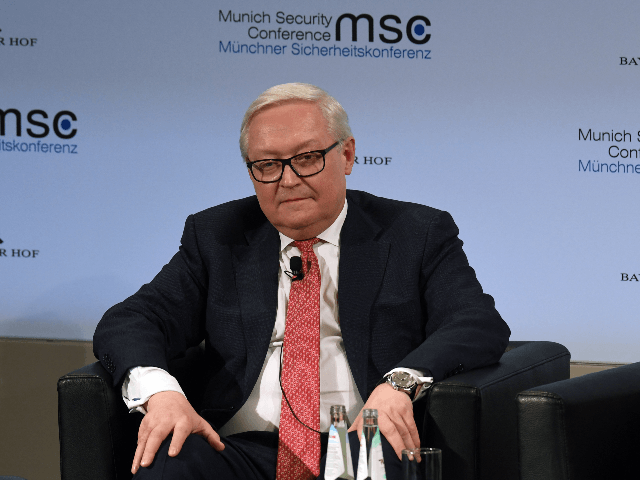Russian Deputy Foreign Minister Sergey Ryabkov said on Sunday that Iran’s arguments for seizing a British-flagged oil tanker on Friday are “much more right than those of Gibraltar and London, who are indulging in piracy.”
“Arguments cited by the Iranian side to explain its actions are much more convincing than vague references to the European Union’s sanction law that were used by the Gibraltar authorities with the United Kingdom’s backing at the moment of the arrest of a Panama-flagged tanker carrying Iranian oil,” Ryabkov said.
The Russian diplomat was comparing Iran’s seizure of the oil tanker Stena Impero on Friday with the impounding of the Iranian-flagged Grace 1 in Gibraltar on July 4.
British officials said the Iranian tanker was impounded because it was carrying oil to Syria in defiance of European Union sanctions. The Iranians, with some support from European critics of the U.K. action, maintain the United States pressured the British into stopping the tanker to intensify U.S. sanctions pressure against Iran.
The Iranians regard those U.S. sanctions as illegal and loudly denounce the seizure of the Grace 1 as an act of “piracy,” while insisting their own retaliatory capture of the Stena Impero was justified. The British hold the opposite view. Ryabkov signaled that Russia is inclined to take Iran’s side in the dispute.
Senior Russian lawmaker Konstantin Kosachev on Saturday accused the United States of deliberately increasing tensions with Iran and using the situation as a pretext to impose a broader agenda upon the Middle East, as summarized by Newsweek:
“The Pentagon just approved the transfer of troops to Saudi Arabia. The U.S. also announced the development of an international operation aimed to ‘defend the navigation in the Middle East in light of recent events in the Persian Gulf region,'” Kosachev wrote. “The goals of the United States are clear.”
“First, it is necessary to stir up tensions around Iran, and Tehran actively ‘plays along,’ in particular with the seizure of a British tanker,” Kosachev argued, referencing the Revolutionary Guards’ detainment Friday of the U.K.-flagged Stena Impero after it allegedly defied regulations while sailing through the Strait of Hormuz. “Secondly, the key task is to make Iran a problem not just for Washington, which is fixated on that, but for the widest possible range of states.”
The seizure came weeks after the U.K. captured Iran’s own Panamanian-flagged Grace 1 supertanker as it was accused of attempting to transport oil to Syria via Gibraltar, allegedly violating European Union sanctions. Referencing this seizure, Kosachev argued that “Great Britain was the first to join in by starting a ‘war with tankers’ with Tehran.”
At the same time, “the recent operation by the Islamic Revolutionary Guard Corps (IRGC) to seize the U.K.-flagged Stena Impero in the Strait of Hormuz has certainly added to the concerns of other important international players—Germany and France have already expressed their concerns,” he wrote. “They are also likely to support the Pentagon’s international maritime Operation Sentinel to ensure the security of key waterways in the Middle East.”
Contrary to Kosachev’s paranoia, U.S. Secretary of State Mike Pompeo said on Monday that while “the whole world is waking up to the fact that this threat [from Iran] is real,” responsibility for protecting British ships “falls to the United Kingdom.”
“This is a bad regime. It’s not honoring the people of Iran. They have now conducted what amounts to national piracy – a nation-state taking over a ship that’s traveling in international waters,” Pompeo said.
“The United States has a responsibility to do our part, but the world’s got a big role in this too – to keep these sea lanes open,” he said.

COMMENTS
Please let us know if you're having issues with commenting.